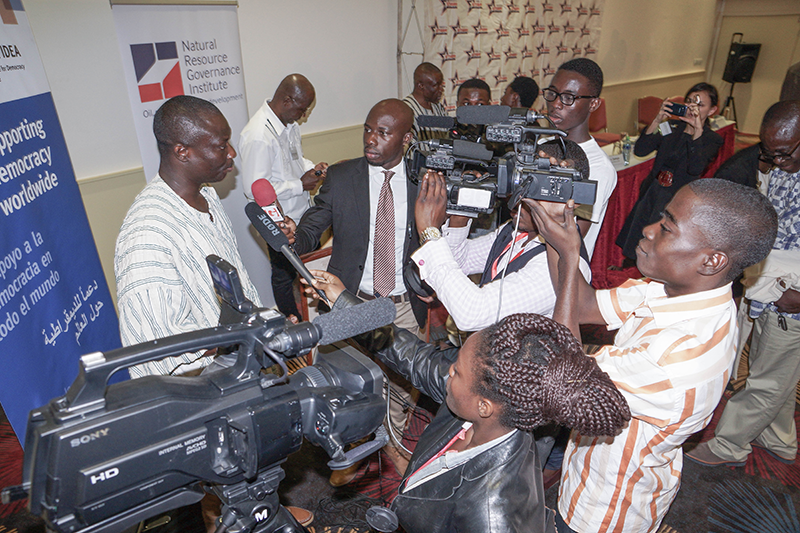
How Political Parties Can Take a More Active Role in Resource Governance
In a publication launched today, the Natural Resource Governance Institute and International IDEA make the case for political parties to take a more active role in transforming natural resources into inclusive and sustainable development.
Political parties can do this by developing well thought-out, clear, informed and comprehensive policy positions that cover relevant issues across the natural resource value chain. Without such positions, parties risk exacerbating the challenges associated with resource wealth—challenges such as corruption, mismanagement, untenable public expectations, revenue volatility and economic distortion. With them, parties can not only help implement policies and systems to avoid the so-called resource curse, but also help their country close the implementation gap between law and practice (as detailed in the 2017 Resource Governance Index).
NRGI and IDEA’s joint work with political parties began with a multiparty policy dialogue in Ghana ahead of the 2016 elections. With support from both organizations, the country’s four main parties developed detailed positions, including thoughtful and informed stances on several of the most pressing resource governance issues facing the country. These new positions contributed to more informed pre-election debate on topics like transparency, beneficial ownership, savings and borrowing. After the elections, the momentum has continued, with the government moving ahead on several of the proposed reforms.
 A participant in at a political parties dialogue on oiland gas policy in Accra, Ghana, speaks to the press in February 2016.
A participant in at a political parties dialogue on oiland gas policy in Accra, Ghana, speaks to the press in February 2016.
This report builds on the successes of and lessons learned from the process in Ghana, NRGI and IDEA expertise, and country case studies. It is also informed by the broader body of good practice in party strengthening and resource governance.
Chapter 1 explains why political parties in resource-rich countries are particularly important players in resource governance. It also addresses the ways other stakeholders interface with party positions and the benefits of cross-party dialogue. Chapter 2 details six country case studies on the roles that some political parties have played in resource governance, both positive and negative. Chapter 3 and its accompanying worksheets offer a practical guide to help political parties develop their own resource policy positions, drawing on IDEA’s expertise on political party strengthening, NRGI’s Natural Resource Charter Benchmarking Framework and the 2017 Resource Governance Index (RGI).
As part of our research for this report, we cross-referenced International IDEA’s Global State of Democracy (GSoD) Indices and the RGI. This analysis identified a strong positive correlation between what the GSoD refers to as “political representation” and RGI scores on “value realization” and “revenue management.” What this means is that where citizens have free and equal access to political power, including strong political parties, there are better laws, institutions and practices in place to manage natural resources.
Political parties have a fundamental role to play in designing and implementing good resource governance systems. By developing comprehensive resource positions, they are better able to communicate who they are and what they stand for to constituents and, whether in power or in opposition, participate in policy making and public debate in a more informed, strategic and unified way.
More than that, parties can help ensure that their country gets the best deal for the extraction of its resources, manages revenues for the long-term best interests of citizens and avoids the resource curse.
Dana Wilkins is a capacity development officer with the Natural Resource Governance Institute (NRGI). Alberto Fernandez Gibaja is a program officer with the International Institute for Democracy and Electoral Assistance.
